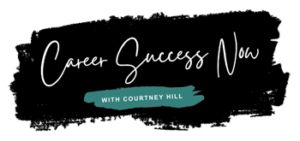I. Introduction
In today’s highly competitive job market, a well-crafted resume is essential to stand out from the crowd. One key element that can make or break your resume is the use of resume buzzwords. These powerful words and phrases can capture the attention of hiring managers and Applicant Tracking Systems (ATS), increasing your chances of landing an interview. This article explores the concept of resume buzzwords, their importance, and how to use them effectively to create a compelling and professional resume.
A. Definition of Resume Buzzwords
Resume buzzwords are specific terms, phrases, and action verbs commonly used in job applications to highlight skills, achievements, and experiences. These words are strategically chosen to align with job descriptions and industry standards, making a candidate’s resume more attractive to employers.
B. Importance of Using Buzzwords in Resumes
Using the right buzzwords can significantly enhance your resume by making it more engaging, readable, and ATS-friendly. Buzzwords help to emphasize your qualifications, demonstrate your value, and show that you speak the same language as the industry you are targeting. They can differentiate you from other applicants and make a positive first impression on hiring managers.
C. Purpose of the Article
This article aims to provide a comprehensive guide on resume buzzwords, including their definition, impact, common examples, and how to incorporate them effectively into your resume. By understanding and utilizing these buzzwords, you can craft a resume that stands out and increases your chances of securing your desired job.

II. Understanding Resume Buzzwords
A. What Are Resume Buzzwords?
Resume buzzwords are dynamic, industry-specific terms that convey your qualifications, skills, and achievements in a succinct and impactful manner. They include action verbs, technical jargon, and key phrases that are highly valued by employers and ATS software. These words help to paint a clear picture of your professional capabilities and accomplishments.
B. Why Employers and ATS Value Buzzwords
Employers and ATS value buzzwords because they streamline the recruitment process. For employers, buzzwords quickly convey whether a candidate possesses the necessary skills and experiences for a job. For ATS, which many companies use to filter applications, buzzwords are critical for ranking and sorting resumes. Resumes that lack relevant buzzwords may never reach a human recruiter, regardless of the candidate’s actual qualifications.
C. Types of Buzzwords
1. Action Verbs
Action verbs are powerful words that describe your responsibilities and achievements in a dynamic and engaging way. Examples include “managed,” “developed,” “implemented,” and “achieved.”
2. Industry-Specific Terms
Industry-specific terms are jargon and technical phrases relevant to particular fields. Using these terms shows that you are knowledgeable and experienced in your industry.
3. Skills
Skills-based buzzwords highlight your abilities and competencies. These can include both hard skills (e.g., “data analysis,” “project management”) and soft skills (e.g., “communication,” “leadership”).
III. The Impact of Resume Buzzwords
A. Enhancing Readability and Engagement
Buzzwords make your resume more readable and engaging by clearly articulating your achievements and responsibilities. They help to create a strong narrative that captures the attention of hiring managers.
B. Improving ATS Compatibility
Using the right buzzwords increases the likelihood that your resume will be ranked highly by ATS software. This improves your chances of getting noticed by recruiters and securing an interview.
C. Highlighting Key Skills and Achievements
Buzzwords effectively highlight your key skills and achievements, making it easier for employers to see your value. They help to emphasize your strengths and demonstrate how your background aligns with the job requirements.
D. Creating a Professional and Polished Resume
A resume filled with relevant buzzwords looks more professional and polished. It shows that you are familiar with industry language and trends, which can impress potential employers.
IV. Common Resume Buzzwords and Phrases
A. Action-Oriented Verbs
Action verbs are critical in describing your experiences and achievements dynamically. Here are some essential action verbs to consider:
1. Led
“Led” is a powerful verb that demonstrates leadership and management skills. It shows that you have taken charge and guided projects or teams to success.
2. Managed
“Managed” highlights your ability to oversee operations, projects, or teams. It suggests that you are capable of handling responsibilities and ensuring tasks are completed efficiently.
3. Developed
“Developed” indicates creativity and innovation. It shows that you have been involved in creating new strategies, products, or processes.
4. Implemented
“Implemented” reflects your ability to execute plans and put ideas into action. It demonstrates that you can translate strategies into tangible results.
5. Achieved
“Achieved” emphasizes your accomplishments and successes. It shows that you have met or exceeded goals and objectives.
B. Industry-Specific Terms
Different industries have their own jargon and technical terms. Using these can show your familiarity and expertise in a particular field.
1. Healthcare
In the healthcare industry, terms like “patient care,” “clinical protocols,” “EHR (Electronic Health Records),” and “HIPAA compliance” are important.
2. IT/Technology
For IT and technology, buzzwords such as “software development,” “cybersecurity,” “cloud computing,” “AI (Artificial Intelligence),” and “DevOps” are relevant.
3. Marketing
Marketing professionals should use terms like “SEO (Search Engine Optimization),” “content marketing,” “brand strategy,” “market research,” and “PPC (Pay-Per-Click).”
4. Finance
In finance, terms such as “financial analysis,” “risk management,” “investment strategies,” “budgeting,” and “compliance” are crucial.
5. Education
For education, buzzwords like “curriculum development,” “student assessment,” “instructional design,” “classroom management,” and “pedagogy” are important.
C. Skill-Based Buzzwords
Skills-based buzzwords focus on your abilities and competencies, both hard and soft skills.
1. Communication
Effective communication is vital in any job. Highlight your ability to communicate clearly and effectively with terms like “negotiation,” “presentation,” “public speaking,” and “written communication.”
2. Problem-Solving
Problem-solving skills are highly valued. Use terms such as “troubleshooting,” “analysis,” “resolution,” and “strategic thinking” to showcase these abilities.
3. Teamwork
Collaboration and teamwork are essential in most workplaces. Highlight these skills with terms like “collaboration,” “team coordination,” “group projects,” and “partnership.”
4. Leadership
Leadership skills are crucial for management roles. Use buzzwords like “mentorship,” “team leadership,” “executive decision-making,” and “influencing.”
5. Time Management
Time management is important for productivity. Showcase this skill with terms like “prioritization,” “scheduling,” “deadline management,” and “efficiency.”
D. Achievement-Focused Phrases
Achievement-focused phrases emphasize your successes and contributions.
1. Increased Efficiency
“Increased efficiency” shows that you have made processes faster or more effective. This phrase highlights your ability to improve operations.
2. Reduced Costs
“Reduced costs” demonstrates your ability to save money for the company. It reflects your efficiency in managing resources.
3. Improved Customer Satisfaction
“Improved customer satisfaction” indicates that you have enhanced the customer experience. This phrase is especially relevant in customer-facing roles.
4. Expanded Market Share
“Expanded market share” shows that you have contributed to the growth of the company’s market presence. It reflects your success in strategic initiatives.
5. Boosted Revenue
“Boosted revenue” highlights your impact on the company’s financial performance. This phrase is particularly relevant in sales and business development roles.
V. How to Effectively Incorporate Buzzwords in Your Resume
A. Aligning Buzzwords with Job Descriptions
To maximize the impact of buzzwords, align them with the specific job description. Carefully read the job posting and identify the key skills and qualifications required. Incorporate these buzzwords naturally into your resume to show that you are a perfect match for the position.
B. Balancing Buzzwords with Substance
While buzzwords are important, they should not overshadow the substance of your resume. Ensure that each buzzword is backed up with concrete examples and achievements. This balance makes your resume both engaging and credible.
C. Avoiding Overuse and Clichés
Overusing buzzwords or relying on clichés can make your resume seem insincere or generic. Use buzzwords judiciously and focus on those that genuinely reflect your skills and experiences. Avoid overused terms like “hardworking” or “results-oriented” unless you can provide specific evidence.
D. Demonstrating Results and Impact
Whenever you use buzzwords, pair them with quantifiable results and impacts. For example, instead of saying “managed a team,” say “managed a team of 10 employees, leading to a 20% increase in productivity.” This approach provides tangible evidence of your abilities.
E. Tailoring Buzzwords for Different Positions
Different positions may require different sets of buzzwords. Customize your resume for each job application, highlighting the buzzwords that are most relevant to the specific role. This tailoring shows that you have carefully considered the job requirements and are genuinely interested in the position.
VI. Pitfalls to Avoid with Resume Buzzwords
A. Using Vague or Generic Buzzwords
Buzzwords should be specific and meaningful. Avoid vague terms that do not clearly convey your skills or achievements. Be precise and detailed to ensure that your resume is impactful and informative.
B. Focusing on Quantity Over Quality
It is better to use a few well-chosen buzzwords effectively than to overload your resume with too many. Quality is more important than quantity. Focus on the most relevant and powerful buzzwords that best represent your qualifications.
C. Ignoring Context and Relevance
Buzzwords should always be relevant to the job and industry. Do not use buzzwords just for the sake of it. Ensure that they are appropriate for the context and genuinely reflect your experience and skills.
D. Overloading the Resume with Jargon
While industry-specific terms are important, overloading your resume with jargon can make it difficult to read and understand. Strike a balance between technical language and clear, concise communication.
E. Neglecting Personalization
A generic resume filled with buzzwords will not stand out. Personalize your resume for each job application, focusing on the buzzwords and qualifications that are most relevant to the specific role and company.
VII. Real-Life Examples of Effective Buzzword Use
A. Case Study 1: Entry-Level Position
Emily, a recent college graduate, applied for an entry-level marketing position. She tailored her resume to include buzzwords from the job description, such as “content creation,” “social media management,” and “SEO.” She also highlighted her internship experience, where she “developed social media campaigns that increased engagement by 30%.” Emily’s use of relevant buzzwords helped her secure an interview and ultimately, the job.
B. Case Study 2: Mid-Career Professional
Tom, a mid-career professional with over a decade of experience in project management, felt his resume did not do justice to his achievements. A professional resume writer helped him incorporate buzzwords like “project lifecycle,” “stakeholder management,” and “risk assessment.” Tom also emphasized his accomplishments, stating, “Led a cross-functional team to complete a $2 million project on time and under budget.” These changes helped Tom get noticed by employers and receive multiple job offers.
C. Case Study 3: Executive Role
Sarah, an experienced executive, aimed to transition to a senior leadership role in a new industry. She worked with a resume writer to incorporate buzzwords like “strategic vision,” “organizational development,” and “executive leadership.” Sarah also highlighted her achievements, such as “Increased company revenue by 40% over three years through strategic initiatives.” These adjustments made her resume stand out, leading to a successful career transition.
D. Case Study 4: Career Transition
Michael, a marketing executive, wanted to transition to the tech industry. He identified transferable skills and buzzwords relevant to his target industry, such as “digital transformation,” “agile methodology,” and “product development.” Michael also emphasized his achievements, like “Led a team to develop a new product line that generated $1 million in revenue.” His tailored resume helped him secure a job in the tech industry.
E. Case Study 5: Industry-Specific Resume
Jessica, a healthcare professional, applied for a senior nursing position. She used industry-specific buzzwords like “patient care,” “clinical protocols,” and “EHR management.” Jessica also highlighted her achievements, stating, “Implemented a new patient care protocol that reduced hospital readmissions by 15%.” Her targeted resume helped her secure a leadership role in healthcare.
VIII. Conclusion
A. Summary of Key Points
Resume buzzwords are essential for creating a compelling and professional resume. They enhance readability, improve ATS compatibility, highlight key skills and achievements, and create a polished and professional impression. Understanding the different types of buzzwords and how to incorporate them effectively can significantly improve your job application.
B. Importance of Making an Informed Choice
Choosing the right buzzwords involves assessing job descriptions, aligning your resume with the job requirements, and balancing buzzwords with substance. Making an informed choice about which buzzwords to use can greatly impact your job search success.
C. Final Thoughts on Crafting an Impactful Resume
Crafting an impactful resume is an ongoing process that requires continuous learning and adaptation. By leveraging the power of resume buzzwords, you can create a resume that stands out to both ATS and hiring managers. Investing time and effort into understanding and using buzzwords effectively can set you on the path to a successful career.
IX. Additional Resources
A. Recommended Books and Guides
- “The Elements of Resume Style” by Scott Bennett
- “Resume Magic” by Susan Britton Whitcomb
- “What Color Is Your Parachute?” by Richard N. Bolles
B. Online Tools and Templates
- Resume Builder by Zety
- Canva Resume Templates
- NovoResume
C. Workshops and Courses on Resume Writing
- LinkedIn Learning: “Writing a Resume”
- Udemy: “Resume Writing: How to Market Your Strongest Qualifications”
- Coursera: “How to Write a Resume (Project-Centered Course)”
By utilizing these resources, you can continue to refine your resume and enhance your job search strategy. Understanding the importance of resume buzzwords and how to use them effectively will help you craft a resume that opens doors to new opportunities and career growth.


